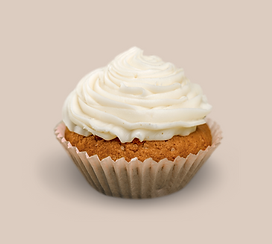What Does It Mean To
Eat Intuitively?

Intuitive eating is about trusting your body; being guided by your hunger and satiety and not being influenced by typical dietary rules or culture.
In today's society, we're accustomed to being told exactly what food we should eat, when to eat it and how much to eat. It's because of this we're so disconnected from our innate hunger and fullness cues. We're also told how much sleep we should have and how much exercise we should do and almost all this advice is pushed on us without any real consideration for our unique lifestyle, our likes, dislikes, genetics or current health picture.
To make matters worse we live in a society that prides itself on pushing our body to the limit for productivity and success, which again leaves us overriding our internal signals and reaching for excessive amounts of caffeine, sugar, food and alcohol to soothe and relax us.
Intuitive eating is an approach to eating that considers you the expert on your body and its needs.
In essence, it rejects the idea that anything outside of you should dictate when and what you should eat. Essentially - it says 'screw traditional diets and imposed rules' and instead, bring awareness within.
The intuitive eating guidelines cultivate trust in your body to be the guide.
Does this sound like you?
.png)
Stuck in a cycle of dieting
.png)
Always following the latest diet trend
.png)
Using food or alcohol to destress
The cycle of dieting, the latest food obsessions & emotional eating are some of the ways we disconnect from our innate hunger and fullness signals

What is Diet Culture?
Diet culture is the glorification of losing weight at all costs. It pairs thinness with beauty and prioritises calorie restriction over physical and emotional health. It fuels negative self-talk and has us believe that a certain body type is not only expected to feel valuable but also something attainable for anyone with enough 'will-power'. Sadly, it’s through this damaging lens that most women in society view themselves and make decisions about their health. What's worse, is that it also colours our judgments about other people's bodies. This is fatphobia. Diet culture is the encapsulation of diet promotion, cleanses, summer bodies and bouncing back after having a baby.
This illustration is by Classic Katsara - NFT Artist, Illustrator and Designer, based in Switzerland. You can find her stunning work here.
It's Time to Ditch Diet Culture & Let Your Body Be The Guide
Chronic dieting, the fear of weight gain and misinformation from influencers in the health space leads us away from trusting our body and it's intuition. Once you recognise that the promotion of extreme diets and idealisation of thinness is damaging your digestion, appetite, hormones and capacity for self-love - you'll see the true value in eating intuitively.
Intuitive eating takes you away from labelling foods as good or bad, it stops the restriction, prevents binge eating and promotes a healthy attitude toward food and body image. The premise is that you eat when you're hungry and stop when you're full - but it's more in-depth than this. To eat intuitively you must first rediscover how to listen to and trust your body again. One part of this process is to distinguish between physical and emotional hunger.

Physical Hunger
A biological urge that arises to ensure our body is fuelled and nourished with good nutrition. It builds gradually and shows up in different ways such as a growling stomach, fatigue or irritability. It's satisfied by eating any and all kinds of food.

Emotional Hunger
A desire driven by emotions such as sadness, loneliness, excitement and boredom. It's satisfied by comfort foods usually rich in sugar, fats and carbohydrate. Eating in response to this can happen unconsciously and result in guilt and self-loathing.
Why Do You Use Food To Soothe Yourself?
Reaching food for food when you're stressed, sad, bored or excited happens for a number of reasons. One is the rebound effect of dieting. The restriction of specific foods creates an overwhelming need for those foods. We essentially want what we can't have. We also emotionally eat because foods (especially those rich in carbohydrates) provide nutrients like tryptophan that make us feel good. Finally, we tend to eat emotionally because it's a way to escape ourselves when life gets hard. It's a vicious cycle that one can easily get trapped in and whichever way you look at it, your health (particularly your digestion) is negatively affected.

Let's Work Together
The intuitive eating practices and principles we support our clients to implement are a way out of this cycle and a means to restore a harmonious relationship with food. My background in psychology and experience with natural medicine allows me to form a personalised holistic plan unique to your needs. The right herbs, nutrients and intuitive eating practices will help you reach a place where you feel balanced and safe to trust the signals from your body.
Download our free "Emotional Eating Survival Guide" where I share tips on overcoming the main drivers of emotional eating or take a deep dive, commit to making a change and book the emotional eating package for yourself and your wellbeing.



